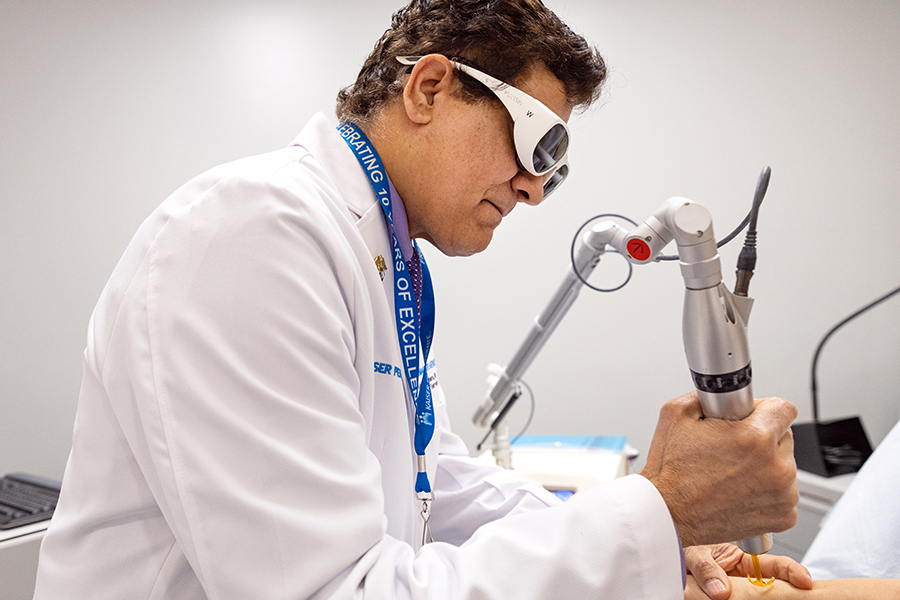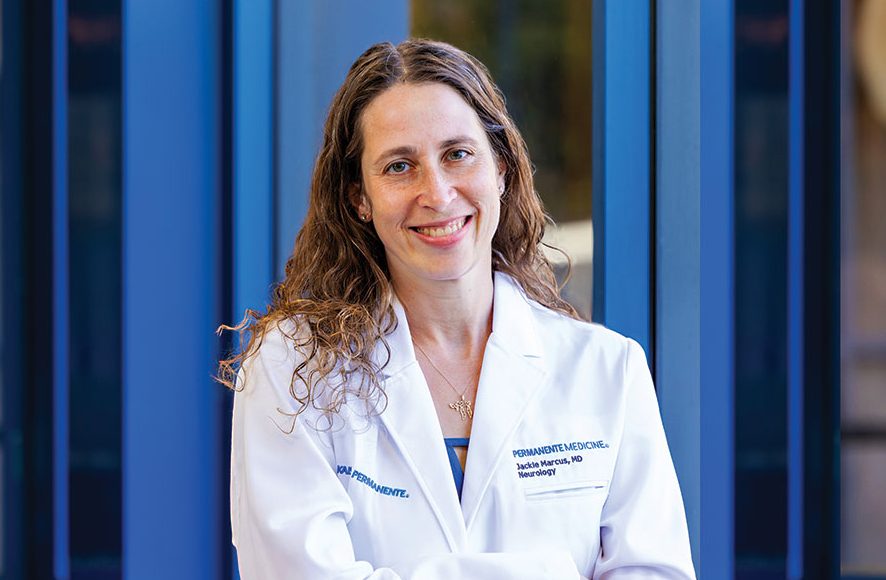Inside KP-November 1, 2017
Karen Murrell, MD, said she never saw any red flags.
In 1988 her 22-year-old sister, Jeannie, was dating someone who looked very normal from the outside. After she broke up with him, he savagely murdered her.
At 26, Dr. Murrell lost her sister and was left reeling. During the trial, she learned that Jeannie’s boyfriend had been on trial for the murder of another woman — and had been released.
“What really got to me was that my family knew his parents well, and they never said anything, never warned us or Jeannie.”
That tragedy shaped Dr. Murrell’s life.
“I was a nurse at the time, and had wanted to become a doctor. Ultimately, Jeannie’s death was the reason I went to medical school. It made me think about how you only live once, so you have to do what you really want.”
The man is currently in prison for life, while Dr. Murrell is an Emergency Medicine physician at KP South Sacramento. She regularly tells her story to her colleagues to underscore the importance of identifying intimate partner violence (IPV) victims in emergency departments.
Identifying, Helping the Victims
Each KP Northern California medical center ED now has a physician, nurse, and social worker champion, working together to address the unique challenges of IPV as it appears in the ED setting, according to Brigid McCaw, MD, medical director of the KP Northern California Family Violence Prevention Program and an Internal Medicine physician from KP Richmond.
One of the issues that make screening hard is that patients come in with such a variety of illnesses and injuries that the range may mask IPV.
IPV includes injury, but also psychological abuse, forced social isolation, intimidation, threats, and stalking.
Dr. Murrell said she often thinks of the patient who came into a KP ED with a sore throat. When the physician checked the patient’s chart, it showed the woman had suffered IPV in the past. Some gentle inquiry followed — in which the woman said that her sore throat was from her partner choking her. She got help right there in the ED.
“This is an example of how our integrated health care delivery can be life-saving,” Dr. Murrell explained. “We are not one doctor talking to a patient, but an entire continuum of care.”
Often victims in the ED can be hard to help because the setting can lack privacy, and they may be accompanied by those who are hurting them — a tactic to prevent them from voicing the abuse.
Knowing that, Northern California Region EDs are developing workflows that ensure that patients can be interviewed without anyone else with them, so they can ask for help if needed.
A Shockingly Prevalent Concern
According to speakupnow.org, 1 in 3 women and 1 in 4 men have been victims of some form of physical violence by an intimate partner within their lifetime.
Dr. McCaw confirmed that IPV is much more prevalent than many may think, and the ED statistics are sobering.
“Out of the 295,000 women seen in our own region’s emergency departments in the last 12 months, 40,000 were experiencing current intimate partner violence,” Dr. McCaw said. “Of the approximately 5,900 there seeking care for physical injuries due to IPV, only 1,300 women were actually identified. That’s why our EDs are actively working on improving those numbers in 2018.”A study published in The Journal of the American Medical Association indicated that 14 percent of women seen in community EDs are currently experiencing IPV, while 2 percent are there for a current injury due to IPV.
Years after the death of her sister, Dr. Murrell had to face IPV again when her teen daughter Maggie was verbally abused and then struck by her high-school boyfriend. With help from family and friends, Maggie is doing well today. In fact, her high-school senior year project is the creation of a phone app to help teens recognize the signs of IPV.
“There are a lot of preconceptions about who is affected,” Dr. Murrell said. “But believe me, I know now that it can happen to anyone.”
If you need help for yourself or someone you know who is experiencing an abusive relationship call the National Domestic Violence Hotline at 1-800-799-7233. It’s free, confidential, and available 24/7. Learn more about KP’s Family Violence Prevention Program and about the topic of domestic abuse.
This article originally appeared in Inside KP






